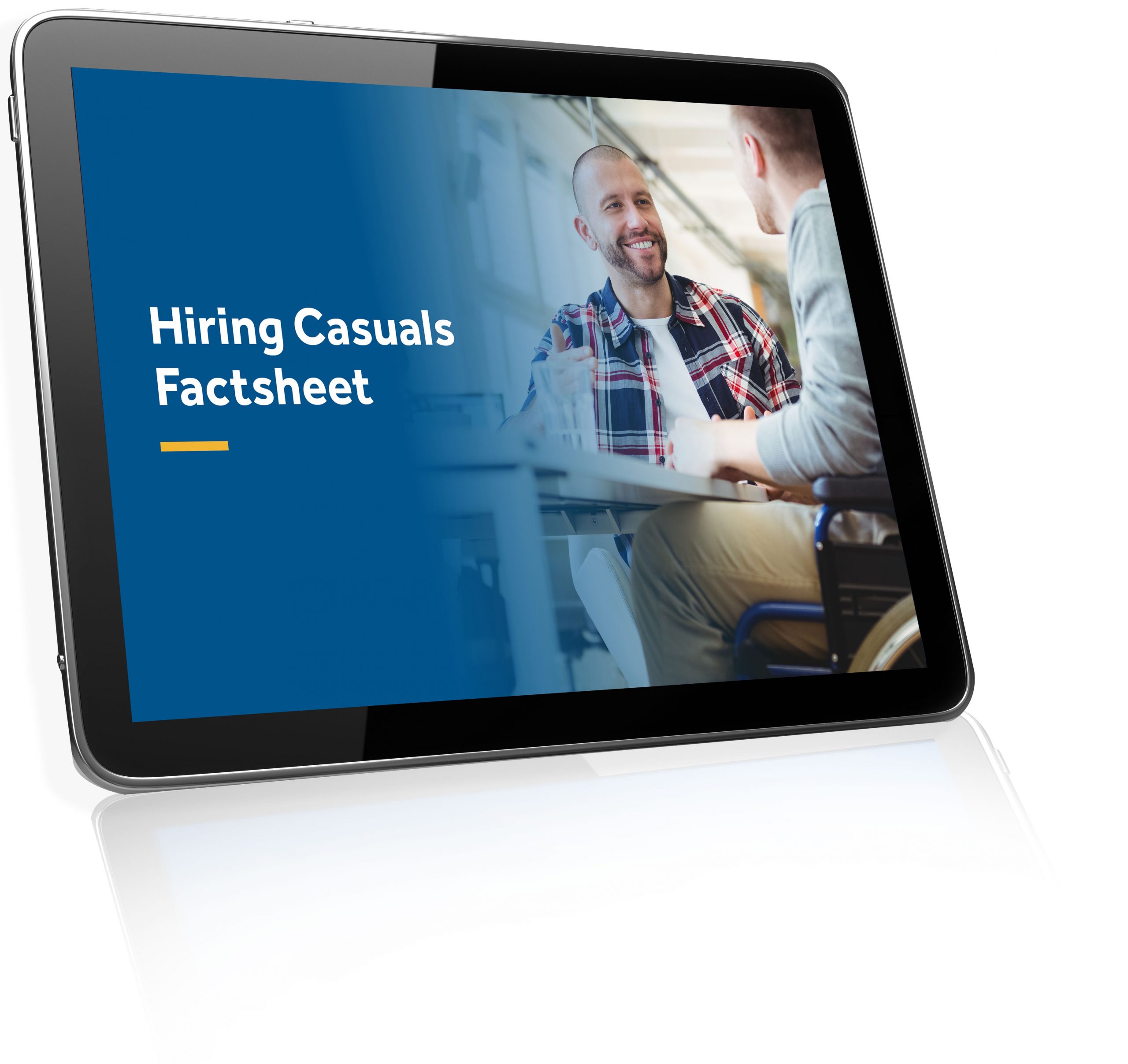
You’re back in business! It’s busy-a-go-go! After a long slow year of lockdowns, you may suddenly find yourself on a merry go round of staff hiring, now that borders have re-opened in Australia. It was hard enough to find the right staff for your business before, but now it may seem impossible. We can help you decide if you should employ casuals or fixed-term employees over busy periods.
There are a few options available for businesses to consider depending on the individual requirements of the role. It is important for businesses to be aware of the advantages and disadvantages of each option in order to set the business up for success during this period.
What Is the Difference Between Fixed-Term and Casual Employees?
Fixed-Term Employment
Fixed term refers to someone you hire for a predetermined amount of time, for example, to cover someone on maternity leave or project. This can be 38 hours a week for a period of a year or only five hours a week for a total of two weeks.
The hours of employment are guaranteed for a specified period. At the end of that period, both parties understand that the engagement is terminated. For example, you may only be hiring someone for one month to give yourself time to find a permanent employee. Perhaps you are only hiring someone in December until the holiday season is over. It is important to clarify these terms in writing with your employee.
Casual Employment
A casual employee is not guaranteed a certain number of hours. Nor are they obligated to be available for work. In other words, they will work for you when you need them and when they are willing. A genuine casual employee should have irregular hours.
Hiring Casuals Over Busy Periods
During busy seasons, engaging employees on a casual basis will usually provide employers with the most flexibility in relation to fulfilling their resource requirements. Due to the nature of casual employment, casual employees generally have no guarantee of hours and can be called upon as required by the Employer.
The Advantages
Flexibility for the employer to meet increased demand or a specific task
You are under no obligation to retain the employee (before they meet a certain length-of-employment threshold)
No need to pay leave entitlements and maybe a cheaper resource for sporadic tasks than other forms of short-term employment
The Disadvantages
Casuals will attract a higher hourly rate in lieu of entitlements granted to permanent staff
Casuals are usually required to be engaged for a minimum period (e.g. 3 hours) per shift depending on the relevant award
Some awards require a casual to be offered permanent (full-time/part-time) employment after a specific period (commonly 6 months)
Casuals have the ability to reject shifts offered to them
Casual employees can be difficult to retain and may be less committed to the business
Long term, regular casuals may become eligible for additional entitlements provided to part-time and full-time employees.
Hiring Fixed Term Employees Over Busy Periods
Engaging an employee for a fixed-term period (e.g. Christmas holiday period) may provide employers with a more cost-efficient option (lower hourly rate than casuals) and attract a larger pool of potential employees due to the guarantee of hours over for a fixed period.
You can engage employees on a full-time or part-time basis under this option. Additionally, employees engaged on a fixed-term basis are generally excluded from access to unfair dismissal, provided their employment is terminated at the end of the specified period.
The Advantages
Fill an immediate gap in your workforce
You can recruit a specialist, already proficient in a particular skill or project
More accurate budgeting and resource planning
Can be a great way to trial an employee before offering permanent work
The Disadvantages
There is generally less flexibility in varying the hours a fixed term employee works, as set hours are guaranteed
Fixed-term employees will be entitled to personal and annual leave on a pro rata basis
Fixed-term employees rostered to work on a public holiday are generally required to be paid even if the business is not trading
Part time fixed term employees are also often required to be engaged for a minimum period per shift under the relevant award
Continuously extending or rolling over a fixed-term contract of employment may risk the position being considered permanent.
It is important that you clearly document and record the type of agreement. Failing to clearly document the type of engagement in an employment contract could expose the business to potential claims.
If you are unsure of whether your employee is a fixed-term or casual worker, contact us. There can be overlaps, which can make it confusing. We can also help you determine minimum casual rates of pay and come up with a fixed-term or casual worker agreement.
Call our 24/7 Advice line to get all your tricky questions answered.

Hiring Casuals
While casual employment gives your business great flexibility, it comes with specific conditions, entitlements and obligations. It can be more confusing than it seems and it’s easy to get it wrong! Ensure you know the ins and outs of hiring casuals in your business.
Download our FREE Hiring Casuals: A quick factsheet for NDIS service providers.
